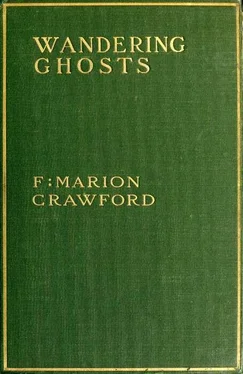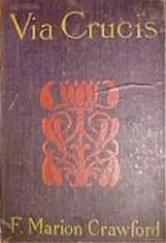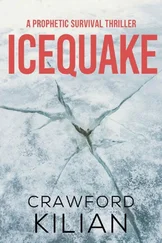F. Crawford - Wandering Ghosts
Здесь есть возможность читать онлайн «F. Crawford - Wandering Ghosts» весь текст электронной книги совершенно бесплатно (целиком полную версию без сокращений). В некоторых случаях можно слушать аудио, скачать через торрент в формате fb2 и присутствует краткое содержание. Год выпуска: 2012, Жанр: Ужасы и Мистика, на английском языке. Описание произведения, (предисловие) а так же отзывы посетителей доступны на портале библиотеки ЛибКат.
- Название:Wandering Ghosts
- Автор:
- Жанр:
- Год:2012
- ISBN:нет данных
- Рейтинг книги:3 / 5. Голосов: 1
-
Избранное:Добавить в избранное
- Отзывы:
-
Ваша оценка:
- 60
- 1
- 2
- 3
- 4
- 5
Wandering Ghosts: краткое содержание, описание и аннотация
Предлагаем к чтению аннотацию, описание, краткое содержание или предисловие (зависит от того, что написал сам автор книги «Wandering Ghosts»). Если вы не нашли необходимую информацию о книге — напишите в комментариях, мы постараемся отыскать её.
Wandering Ghosts — читать онлайн бесплатно полную книгу (весь текст) целиком
Ниже представлен текст книги, разбитый по страницам. Система сохранения места последней прочитанной страницы, позволяет с удобством читать онлайн бесплатно книгу «Wandering Ghosts», без необходимости каждый раз заново искать на чём Вы остановились. Поставьте закладку, и сможете в любой момент перейти на страницу, на которой закончили чтение.
Интервал:
Закладка:
I believe I gave no answer. My eyes were riveted upon the porthole. It seemed to me that the brass loop-nut was beginning to turn very slowly upon the screw—so slowly, however, that I was not sure it moved at all. I watched it intently, fixing its position in my mind, and trying to ascertain whether it changed. Seeing where I was looking, the captain looked too.
"It moves!" he exclaimed, in a tone of conviction. "No, it does not," he added, after a minute.
"If it were the jarring of the screw," said I, "it would have opened during the day; but I found it this evening jammed tight as I left it this morning."
I rose and tried the nut. It was certainly loosened, for by an effort I could move it with my hands.
"The queer thing," said the captain, "is that the second man who was lost is supposed to have got through that very port. We had a terrible time over it. It was in the middle of the night, and the weather was very heavy; there was an alarm that one of the ports was open and the sea running in. I came below and found everything flooded, the water pouring in every time she rolled, and the whole port swinging from the top bolts—not the porthole in the middle. Well, we managed to shut it, but the water did some damage. Ever since that the place smells of sea-water from time to time. We supposed the passenger had thrown himself out, though the Lord only knows how he did it. The steward kept telling me that he cannot keep anything shut here. Upon my word—I can smell it now, cannot you?" he enquired, sniffing the air suspiciously.
"Yes—distinctly," I said, and I shuddered as that same odour of stagnant sea-water grew stronger in the cabin. "Now, to smell like this, the place must be damp," I continued, "and yet when I examined it with the carpenter this morning everything was perfectly dry. It is most extraordinary—hallo!"
My reading lantern, which had been placed in the upper berth, was suddenly extinguished. There was still a good deal of light from the pane of ground glass near the door, behind which loomed the regulation lamp. The ship rolled heavily, and the curtain of the upper berth swung far out into the state-room and back again. I rose quickly from my seat on the edge of the bed, and the captain at the same moment started to his feet with a loud cry of surprise. I had turned with the intention of taking down the lantern to examine it, when I heard his exclamation, and immediately afterwards his call for help. I sprang towards him. He was wrestling with all his might with the brass loop of the port. It seemed to turn against his hands in spite of all his efforts. I caught up my cane, a heavy oak stick I always used to carry, and thrust it through the ring and bore on it with all my strength. But the strong wood snapped suddenly, and I fell upon the couch. When I rose again the port was wide open, and the captain was standing with his back against the door, pale to the lips.
"There is something in that berth!" he cried, in a strange voice, his eyes almost starting from his head. "Hold the door, while I look—it shall not escape us, whatever it is!"
But instead of taking his place, I sprang upon the lower bed, and seized something which lay in the upper berth.
It was something ghostly, horrible beyond words, and it moved in my grip. It was like the body of a man long drowned, and yet it moved, and had the strength of ten men living; but I gripped it with all my might—the slippery, oozy, horrible thing—the dead white eyes seemed to stare at me out of the dusk; the putrid odour of rank sea-water was about it, and its shiny hair hung in foul wet curls over its dead face. I wrestled with the dead thing; it thrust itself upon me and forced me back and nearly broke my arms; it wound its corpse's arms about my neck, the living death, and overpowered me, so that I, at last, cried aloud and fell, and left my hold.
As I fell the thing sprang across me, and seemed to throw itself upon the captain. When I last saw him on his feet his face was white and his lips set. It seemed to me that he struck a violent blow at the dead being, and then he, too, fell forward upon his face, with an inarticulate cry of horror.
The thing paused an instant, seeming to hover over his prostrate body, and I could have screamed again for very fright, but I had no voice left. The thing vanished suddenly, and it seemed to my disturbed senses that it made its exit through the open port, though how that was possible, considering the smallness of the aperture, is more than any one can tell. I lay a long time upon the floor, and the captain lay beside me. At last I partially recovered my senses and moved, and instantly I knew that my arm was broken—the small bone of the left forearm near the wrist.
I got upon my feet somehow, and with my remaining hand I tried to raise the captain. He groaned and moved, and at last came to himself. He was not hurt, but he seemed badly stunned.
Well, do you want to hear any more? There is nothing more. That is the end of my story. The carpenter carried out his scheme of running half a dozen four-inch screws through the door of 105; and if ever you take a passage in the Kamtschatka , you may ask for a berth in that state-room. You will be told that it is engaged—yes—it is engaged by that dead thing.
I finished the trip in the surgeon's cabin. He doctored my broken arm, and advised me not to "fiddle about with ghosts and things" any more. The captain was very silent, and never sailed again in that ship, though it is still running. And I will not sail in her either. It was a very disagreeable experience, and I was very badly frightened, which is a thing I do not like. That is all. That is how I saw a ghost—if it was a ghost. It was dead, anyhow.
BY THE WATERS OF PARADISE
I remember my childhood very distinctly. I do not think that the fact argues a good memory, for I have never been clever at learning words by heart, in prose or rhyme; so that I believe my remembrance of events depends much more upon the events themselves than upon my possessing any special facility for recalling them. Perhaps I am too imaginative, and the earliest impressions I received were of a kind to stimulate the imagination abnormally. A long series of little misfortunes, connected with each other so as to suggest a sort of weird fatality, so worked upon my melancholy temperament when I was a boy that, before I was of age, I sincerely believed myself to be under a curse, and not only myself, but my whole family, and every individual who bore my name.
I was born in the old place where my father, and his father, and all his predecessors had been born, beyond the memory of man. It is a very old house, and the greater part of it was originally a castle, strongly fortified, and surrounded by a deep moat supplied with abundant water from the hills by a hidden aqueduct. Many of the fortifications have been destroyed, and the moat has been filled up. The water from the aqueduct supplies great fountains, and runs down into huge oblong basins in the terraced gardens, one below the other, each surrounded by a broad pavement of marble between the water and the flower-beds. The waste surplus finally escapes through an artificial grotto, some thirty yards long, into a stream, flowing down through the park to the meadows beyond, and thence to the distant river. The buildings were extended a little and greatly altered more than two hundred years ago, in the time of Charles II., but since then little has been done to improve them, though they have been kept in fairly good repair, according to our fortunes.
In the gardens there are terraces and huge hedges of box and evergreen, some of which used to be clipped into shapes of animals, in the Italian style. I can remember when I was a lad how I used to try to make out what the trees were cut to represent, and how I used to appeal for explanations to Judith, my Welsh nurse. She dealt in a strange mythology of her own, and peopled the gardens with griffins, dragons, good genii and bad, and filled my mind with them at the same time. My nursery window afforded a view of the great fountains at the head of the upper basin, and on moonlight nights the Welshwoman would hold me up to the glass, and bid me look at the mist and spray rising into mysterious shapes, moving mystically in the white light like living things.
Читать дальшеИнтервал:
Закладка:
Похожие книги на «Wandering Ghosts»
Представляем Вашему вниманию похожие книги на «Wandering Ghosts» списком для выбора. Мы отобрали схожую по названию и смыслу литературу в надежде предоставить читателям больше вариантов отыскать новые, интересные, ещё непрочитанные произведения.
Обсуждение, отзывы о книге «Wandering Ghosts» и просто собственные мнения читателей. Оставьте ваши комментарии, напишите, что Вы думаете о произведении, его смысле или главных героях. Укажите что конкретно понравилось, а что нет, и почему Вы так считаете.












